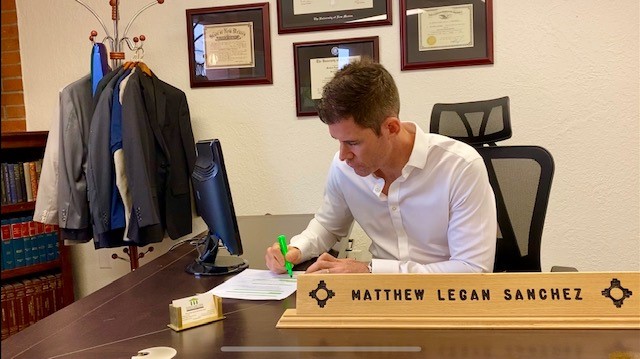
The divorce discovery process in Albuquerque
The Discovery Process During Divorce Case in Albuquerque, New Mexico
The discovery process during divorce case in Albuquerque, New Mexico is the legal process of uncovering a true picture of the assets and debts that were accumulated during the marriage.
Each marriage entails a degree of specialization where each family member becomes responsible for a task or responsibility – creating a more efficient household. For instance, possibly the husband is responsible for home maintenance and “handy man tasks.” Potentially the wife handles financial duties such as paying the bills and managing accounts. When children are involved, each child may be responsible for pet maintenance or technical issues.
Divorce is particularly stressful because a family’s efficient system of specialization is broken. This break causes each spouse to become responsible for tasks and responsibilities that were formerly handled by another member of the family.
The discovery process is more difficult when one spouse handled all of the financial aspects of the marriage, leaving the other spouse in the dark regarding assets/debts.
Generally speaking, the more information that both parties have about the overall financial picture (i.e. assets and debts accumulated during the marriage), the less discovery that is necessary to finalize the divorce.
Each divorce and the accompanying level of discovery is different. With that said, there are generally four steps of increasing difficulty to complete discovery:
Step 1: No discovery because there are no assets and debts to uncover
This step generally applies to short marriages where no assets and debts are accumulated.
New Mexico does not recognize annulments. In order to finalize the divorce, even extremely short marriages require a Martial Settlement Agreement that distributes the marital assets and debts.
One is unable to “discover” something that does not exist. Therefore, when there are no assets or debts, there is no need for discovery. In these situations, the MSA generally states that each party will keep any assets and debts in their name.
No discovery is a potential reality in the following divorce cases:
- Short marriages;
- Marriages where no assets or debts accumulated;
- Knowledge by both parties regarding asset/debts amounts;
- Agreement on how assets and debts will be split.
Step 2: Informal discovery because there are minimal assets and debts
Informal discovery is the process of discovering the parties’ financial picture by producing account statements demonstrating the assets and debts that were accumulated during the marriage. These account statements generally include:
- Most recent mortgage statements;
- Current bank statements;
- Retirement statements demonstrating the balance at the time of marriage and now;
- Credit card statements for amounts accumulated during the marriage;
- Medical debt; and
- Financial information such as pay-stubs and tax returns.
The process is referred to as “informal” because the information is generally requested through email — or letter — rather than through a formal legal document (i.e. Interrogatories and Request for Production of Documents) that formally requires one to produce the requested information according to the civil rules of procedure.
Informal discovery can generally take place with the following divorces:
- Short marriages;
- Straightforward or limited assets/debts; and
- Both parties were involved with the finances and know the assets and debts.
At times, the informal process can breakdown when one party is blind-sided with unknown information regarding assets and debts. The informal discovery process may reveal:
- Shady transfers from bank accounts or retirement accounts;
- Excessive debt that was incurred that did not benefit the community;
- Issues with reported income, for individuals that are self-employed;
- Disagreements regarding asset values – particularly home values.
This uncovered information could result in the need for an additional step in discovery, with formal discovery taking place to reveal information that is necessary to complete the divorce.
Step 3: Formal Discovery: (Interrogatories and Request for Production of Documents)
Formal discovery is the legal process of requesting the other party to produce answers regarding the martial assets and debts, along with supporting documents.
Discovery for Divorce Case: Interrogatories
- Legal jargon that basically means questions regarding assets and debts;
- A legal process where one party formally requests answers to 50 specific questions regarding the marital assets and debts;
- Each interrogatory (i.e. question) must be answered separately and fully, in writing, and under oath;
- The party answering the question must sign and verify that the answers are accurate; and
- The questions generally surround:
- Employment history;
- Income information;
- Property/Asset information;
- Debt information;
- Insurance information; or
- Asset and Debt worksheets that require one to hand write any assets/debts and values.
Discovery in Divorce Case: Request for Production of Documents
Legal requests for the opposing party to produce documents that support the answers provided to interrogatories. These documents include:
- Income information such as pay-stubs and tax returns;
- Bank account information;
- Asset values, such as Kelley Blue Book for vehicles; and
- Statements demonstrating debt amounts.
Formal discovery may be necessary with the following cases:
- Longer marriages, where more assets/debts are accumulated;
- Marriages where one party exclusively handled the marital finances, leaving the other spouse in the dark;
- Suspect information such as withdrawals, or surprisingly low amounts of personal assets and/or high debt that are uncovered during informal discovery;
- One party fails to provide discovery informally, requiring a formal request and specific deadlines to provide answers (generally 30 days from the date that the request is properly made).
Step 4: Formal and In-Person Discovery During Divorce Case:
The highest level of discovery involves a second set of Interrogatories and Request for Production of Documents, with follow up questions and requests. This second set is necessary to illuminate specific issues that were uncovered during the initial, formal discovery phase.
This level also includes “in-person discovery” such as a deposition. A Deposition is an out of court statement that is made under oath. During a deposition, statements are made in response to an attorney’s questions, transcribed, and later can be used in court to impeach the witness’s credibility. In a sense, a deposition is similar to a mini trial enabling an attorney to ask specific questions regarding assets and debts. The answers can then be used in the actual trial to demonstrate inconsistent statements, or outright lies.
Depositions are rarely used in divorce. Nevertheless, depositions may be used for:
- Inconsistent statements or lies within Interrogatories;
- False admissions;
- Denials in Request for Admissions;
- Excessive debts that arguably did not benefit the community;
- Uncovering hidden assets;
- Unreasonable monthly expenses that are uncovered through Request for Production of Documents;
- A spouse is under-reporting one’s income for the purpose of reducing child support or alimony;
- A spouse is purposefully unemployed or underemployed to reduce child support or alimony; and
- Other hidden income such as rental income, dividends, etc.
The discovery process is often one of the more time-consuming and costly aspects of divorce case. Each step that is described above requires progressively greater time and out of pocket expenses – increasing the divorce’s overall expense.
In addition to the increase with expense, each progressive step has the potential to extend the overall time that is necessary to complete the divorce.
Here are some ways to reduce your discovery expenses:
- Organize documents regarding all assets (i.e. vehicles, real estate, bank accounts, life insurance policies, personal property, and collectibles);
- Organize statements relating to all debts and liabilities (i.e. home mortgage, vehicle, credit cards, medical, and student loans).
- Organize documentation of your fixed monthly expenses for interim support purposes (i.e. utilities, minimum credit card payment, medical, child care, and other fixed expenses).
- Organize your year-to-date income information;
- Organize all retirement, securities and investment documents, including final statements and vesting schedules; and
- Organize your Rule 1-123 income information that includes: (1) Tax returns for the two most recent years, (2) Four most recent pay-stubs, (3) Work related child care expenses, and (4) Insurance premiums that are paid for the child.
Failure to Comply with Discovery Requests in New Mexico
A good faith letter or request should be sent when the other side fails to provide the requested discovery information. This letter should clearly establish the information that was requested and set a firm deadline to provide the requested information.
Assuming that the other side still fails to provide the requested discovery, one should file a motion for order compelling discovery, under Rule 1-037.
How to Reduce Discovery Costs During a Divorce case in Albuquerque, NM:
Here are some tips for reducing your discovery costs during divorce case in Albuquerque, NM:
- Keep your financial information up to date and organized before a divorce;
- Have your asset and debt information before the divorce;
- Run a credit check and be familiar with you accounts and balances;
- Do not treat your lawyer’s request for necessary information as a hassle; and
- Work as a team with your lawyer to complete the process.
(505) SANCHEZ IS HERE TO ANSWER YOUR QUESTIONS ABOUT THE DISCOVERY PROCESS DURING DIVORCE CASE IN ALBUQUERQUE, NEW MEXICO
Do you still have questions about the discovery process during divorce case in Albuquerque, New Mexico? Divorce discovery often requires an experienced New Mexico discovery attorney in Albuquerque, New Mexico. Matthew Legan Sanchez can answer your divorce discovery questions. Sanchez can be reached by calling (505) SANCHEZ.

The discovery process during divorce in Albuquerque







